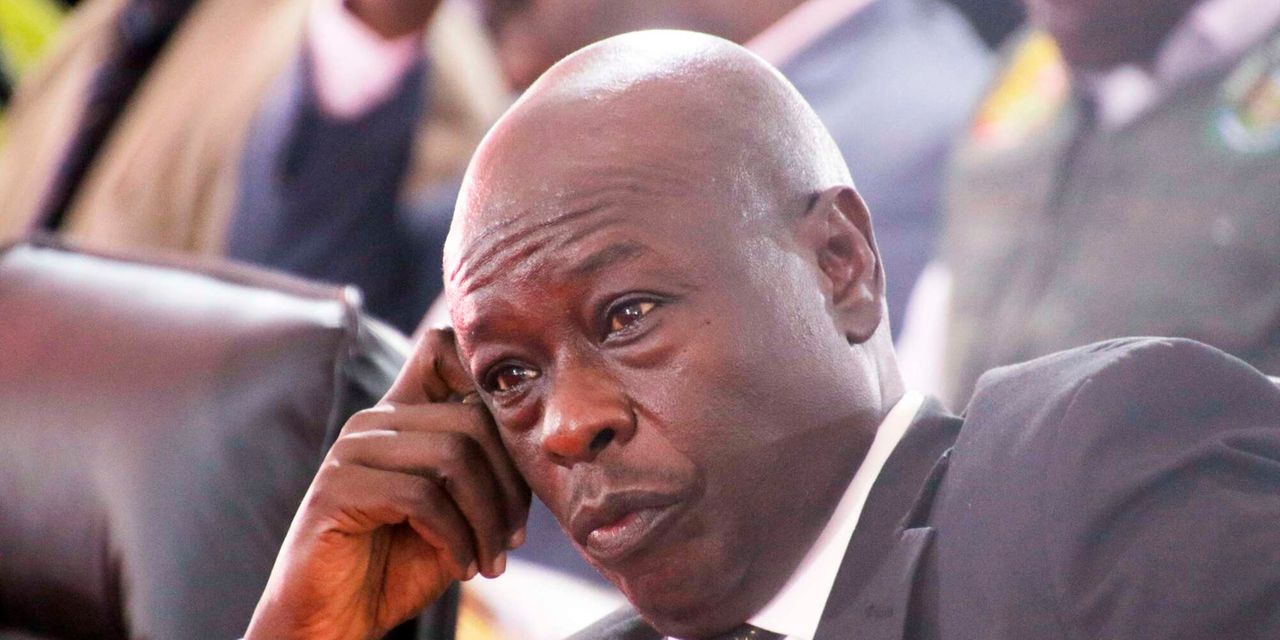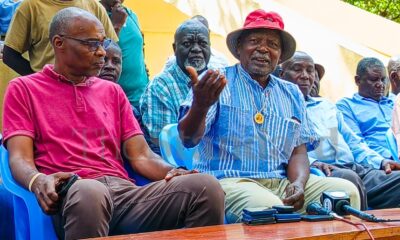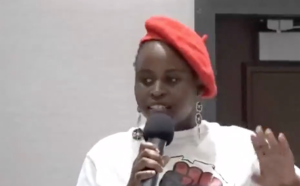News
‘End This Kikuyu Entitlement,’ Kenyan Gen Zs in US Call Out Gachagua Over Tribal Politics
Gachagua had opened the Baltimore meeting by addressing attendees in Kikuyu—a decision that immediately drew criticism from Wanjiru, who despite being from his own Mathira constituency, saw it as emblematic of a broader problem.

Former Deputy President faces direct confrontation over divisive rhetoric during American diaspora tour
Former Deputy President Rigathi Gachagua’s attempt to build international support for his 2027 presidential ambitions hit unexpected turbulence in Baltimore, where young Kenyan-Americans delivered a blunt assessment of his political messaging.
During a town hall meeting that was supposed to showcase diaspora backing, Valentine Wanjiru Githae, representing the youth-led 625 Movement, stood up to deliver what she called “the truth” about Gachagua’s approach to leadership.
The confrontation began with something as simple as language choice.
Gachagua had opened the Baltimore meeting by addressing attendees in Kikuyu—a decision that immediately drew criticism from Wanjiru, who despite being from his own Mathira constituency, saw it as emblematic of a broader problem.
“If we position ourselves as Kikuyu, another tribe will also do that, and before we know it, we are back to the same problem,” she warned, highlighting concerns that Gachagua’s political strategy relies too heavily on ethnic mobilization.
But the critique went deeper than linguistics. Wanjiru specifically challenged remarks Gachagua made during his Boston rally, where he described the Kikuyu as the “drivers of the Kenyan economy” due to their superior work ethic. For the young activist, such statements represent exactly the kind of thinking that has perpetuated Kenya’s political divisions.
“We cannot say that people from other tribes are not hardworking. We have that sense of entitlement as Kikuyus, and it has to stop,” she declared, delivering a message that many politicians prefer not to hear from their own ethnic base.
The exchange reveals the generational and ideological tensions within Kenya’s political landscape. While Gachagua’s US tour—which has included stops in Seattle, Boston, and Baltimore, plus the establishment of Democracy for Citizens Party offices in Washington State and Massachusetts—aims to build momentum for 2027, younger Kenyans appear less willing to accept traditional ethnic-based political calculations.
Gachagua’s response was telling. Rather than engaging with the substance of Wanjiru’s concerns, he dismissed them as falling for a “narrative meant to intimidate the Mt Kenya people,” attributing the tribal framing to the Kenya Kwanza administration. This deflection suggests either an unwillingness or inability to grapple with legitimate questions about his political approach.
The Baltimore confrontation exposes a fundamental challenge facing Gachagua’s presidential ambitions. While he may be successfully organizing diaspora support and establishing party infrastructure abroad, his core political message appears increasingly out of step with younger Kenyans who lived through the transformative Gen Z protests of 2024.
These young voices are demanding something different from their leaders—a politics that transcends ethnic calculations and speaks to shared national aspirations. Whether Gachagua can adapt his messaging to meet this moment, or whether he will continue relying on traditional tribal mobilization tactics, may well determine the viability of his 2027 challenge to President Ruto.
The irony is striking: in seeking international validation for his domestic political project, Gachagua encountered the very critique he might face from progressive voters back home. The question now is whether he will listen to voices like Wanjiru’s, or dismiss them as products of political manipulation.
For Kenya’s political future, the answer matters enormously.
Kenya Insights allows guest blogging, if you want to be published on Kenya’s most authoritative and accurate blog, have an expose, news TIPS, story angles, human interest stories, drop us an email on [email protected] or via Telegram
-

 Business2 weeks ago
Business2 weeks agobetPawa Empire Crumbles: Mr Eazi’s Betting Gambit Unravels Amid Partner’s Shadowy Deals
-

 Business1 week ago
Business1 week agoMinnesota Fraud, Rice Saga, Medical Equipment Deal: Why BBS Mall Owner Abdiweli Hassan is Becoming The Face of Controversial Somali Businessman in Nairobi
-

 News1 week ago
News1 week agoDCI Probes Meridian Equator Hospital After Botched Procedure That Killed a Lawyer
-

 Politics1 week ago
Politics1 week agoYour Excellency! How Ida’s New Job Title From Ruto’s Envoy Job Is Likely to Impact Luo Politics Post Raila
-

 Business1 day ago
Business1 day agoCooking Fuel Firm Koko Collapses After Govt Blocks Sh23bn Carbon Deal
-

 Investigations2 weeks ago
Investigations2 weeks agoEXPOSED: SHA Officials Approve Higher Payments for Family, Friends as Poor Patients Pay Out of Pocket
-

 News1 week ago
News1 week agoKenya Stares At Health Catastrophe As US Abandons WHO, Threatens Billions In Disease Fighting Programmes
-

 Politics2 weeks ago
Politics2 weeks agoJaramogi Clan Tells Raila Jr, Winnie Against Disrespecting Their Uncle Oburu, Warns of Curses
















